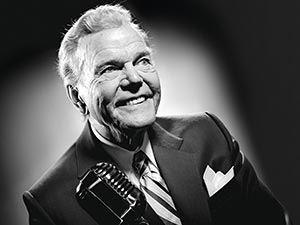A young married couple starts a bookstore and starts a family. They name the bookstore Goldengrove, after the Gerard Manley Hopkins poem. They name their first daughter Margaret, also after the Hopkins poem. They name their second daughter Nico, after the pop icon. Margaret, who has a heart defect, dies suddenly at 17. When Nico later happens upon the poem that begins “Margaret, are you grieving / Over Goldengrove unleaving,” she is incensed at her parents.
For some reason, it infuriated me. I held the book open before me like a cross to ward off a vampire, like the surprise piece of evidence at my parents’ trial for…what? What sadist would name a baby after such a depressing poem? Maybe they’d accidentally caused her death by naming her Margaret. Nancy or Suzie or Heather might still be alive and well. I slammed the book shut as if it were the poem’s fault, though I knew that if I’d read the poem when Margaret was alive, it wouldn’t have meant anything beyond some dead guy’s weak attempt to sound gloomy and important.
In January I read Francine Prose’s new novel Goldengrove, about this 13-year-old girl whose much-loved older sister has died. My interest was caught a bit by the title–I love that Hopkins poem–but mostly by a review by D. G. Myers at his blog A Commonplace Blog. I’d been aware of Prose since college when a friend wrote her BA thesis on her, but had never been tempted to read her. Myers’s blog review changed that:
Goldengrove is a literary dimension, a world made of books, where it is not the trees whose “unleaving” is the occasion for grief. Prose successfully dissembles what she is up to by making her narrator a thirteen-year-old girl who has never heard of Hopkins, has never watched Vertigo, and is more absorbed with global warming than art. When she was a kid, her favorite reading was C. S. Lewis’s Narnia books, because she “longed to enter another dimension through a wardrobe or a snow globe.” After her sister’s death, she pretty much gets her wish. Nico’s emotions are thoroughly mediated by art–songs, films, her mother’s piano pieces, Giovanni di Paolo’s Saint Nicholas of Tolentino Saving a Shipwreck, which she finds in a “volume on Sienese painting so large that I had to spread it across the counter.” And of course she becomes her sister’s boyfriend’s Galatea. The name of Mirror Lake in which Margaret drowns, and to which Nico returns every time she returns home, is appropriate. Human experience mirrors books, which mirror other books, which mirror other books, which mirror other books. . . . There is no original experience “out there”–not adolescent grief, not first love, not being Judy-ed–which the novel sets out to capture with perfect fidelity. There is only the illusion, the images, of experience and fidelity.
Before I ever picked up the novel, Myers’s reading of it gave me a jolt and a lift. “One of us,” it seemed to say. His point is about literature, but it has something to say about life too, at least the lives of readers. Prose’s book is filled with characters who comprehend their experience of the world through the lenses that art–high art, popular art, and everything in between–offers up. Even though Goldengrove tells a sad story, I found great comfort and pleasure in reading about these characters and their attachments to and imitations of art, and appreciated Myers’s identification of this kind of activity and attachment as a subject of the novel. “We learn what we were like as children from such books as The Mill on the Floss, C. S. Lewis’s Narnia stories, and Goldengrove,” he says. Our experience of art is as much a life experience as anything else.
In the book, much of the art that moves the main character Nico, and mediates and organizes her response to her sister’s death, has itself been mediated for her by her sister. In life, Margaret was an authoritative judge and critic of songs, movies, pictures, and an infectious sharer of her enthusiasms. One of the most bitter moments for Nico comes when she discovers that Margaret never shared with her two favorite movies, Casablanca and Ninotchka, that were touchstones in her relationship with her boyfriend. And, as Myers notes above, part of the charge of reading this novel is spending time with an impressionable character who is only just discovering something like Casablanca, who isn’t self-conscious about relaying her impressions, and who unabashedly–in fact, with a desperation–applies what she finds in art directly to life. On one hand her grief drives Nico to look for a key and a salve in everything at hand, and art speaks more urgently to her than most things. But in a sense she’s just experiencing a heightened version of what many of us do with it all the time.

 My friend Rick Brookhiser, who was born in upstate New York, recalled today that “I first heard Paul Harvey when my family drove cross country to California, c. 1960, in our black Comet. When the highways straightened out to long lines, and every intersection was a right angle, he took over the air waves.”
My friend Rick Brookhiser, who was born in upstate New York, recalled today that “I first heard Paul Harvey when my family drove cross country to California, c. 1960, in our black Comet. When the highways straightened out to long lines, and every intersection was a right angle, he took over the air waves.”